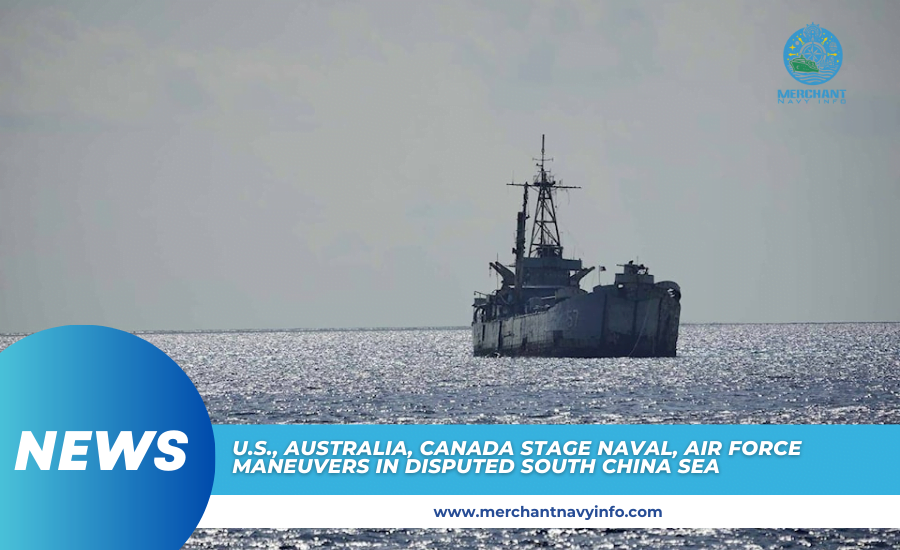
The United States, Australia, Canada, and the Philippines held air and sea exercises on Wednesday. They said it was an effort to strengthen the rule of law in the disputed South China Sea, where China is increasingly asserting its territorial claims. In an apparent response, China said it conducted combat air and sea patrols the same day.
Adm. Samuel Paparo, commander of the U.S. Indo-Pacific Command, and senior military and defense leaders from Australia, Canada, and the Philippines said in a joint statement. That they were “united to address common maritime challenges and reaffirm our shared commitment to defense.” They said they were conducting the two-day exercise to safeguard unimpeded access to the Indo-Pacific.
China has long claimed much of the South China Sea, a vital global trade and security route. And has vowed to defend its regional interests at all costs. Its claims overlap with smaller coastal states, including the Philippines and Vietnam. Hampering access to traditional fishing grounds and disrupting oil and gas exploration in its internationally recognized exclusive economic zone.
“The naval and air forces of the participating countries will work together to enhance cooperation and interoperability among our armed forces,” the leader said. “The activity will be conducted in a manner consistent with international law. With due respect for navigation safety and the rights and interests of other countries,” he added.
Philippine military officials said navy ships and fighter jets would conduct anti-submarine warfare exercises. As well as joint sea lanes and communications screening exercises. The official, who spoke on anonymity, spoke before specific details of the exercise were released.
Philippine Navy spokesman Admiral Roy Trinidad said the exercise was not targeted at any country. But as a “collective expression of support for a rules-based international order.”
US, Australia, and Canada Hold Air And Navy Exercises In Disputed South China Sea.
China said it conducted joint navy and air patrols near Scarborough Shoal in the disputed South China Sea on Wednesday in response to the exercise.
A brief statement from China’s theater command noted that it was aware of “military activities that disrupt the South China Sea” and that they were “under control.” China often accuses the United States, the Philippines, and other countries of undermining regional peace and stability through their military activities.
Paparo and other military leaders, Australian Defence Force Admiral David Johnston, Canadian Armed Forces Gen. Jean Carignan, and Philippine Armed Forces Gen. Romeo Brauner Jr., said their countries “defend the right to freedom” of navigation. Overflight and other lawful uses of the sea and international airspace, and respect for maritime rights under international law.
They did not mention China by name but said their countries affirmed the 2016 arbitration ruling on the South China Sea dispute. “As a final and legally binding decision on the parties to the dispute.” The ruling invalidated China’s broad claims in the South China Sea. But Beijing refused to participate in the arbitration brought by the Philippines, dismissing the ruling and continuing to appeal.
Hostels have erupted between Chinese and Philippine coast guards and navies. In particularly disputed waters over two disputed sandbars since last year. Renewing concerns that the standoff could spiral into a wider armed conflict involving Manila’s longtime ally, the United States.
China and the Philippines reached a temporary agreement last month aimed at preventing further conflict after shocking violence on June 17 at Philippine-occupied Thomas II Shoal in the South China Sea.









